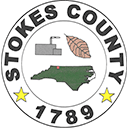Stressful Temperature Swings Impact Beef Cattle
go.ncsu.edu/readext?966500
en Español / em Português
El inglés es el idioma de control de esta página. En la medida en que haya algún conflicto entre la traducción al inglés y la traducción, el inglés prevalece.
Al hacer clic en el enlace de traducción se activa un servicio de traducción gratuito para convertir la página al español. Al igual que con cualquier traducción por Internet, la conversión no es sensible al contexto y puede que no traduzca el texto en su significado original. NC State Extension no garantiza la exactitud del texto traducido. Por favor, tenga en cuenta que algunas aplicaciones y/o servicios pueden no funcionar como se espera cuando se traducen.
Português
Inglês é o idioma de controle desta página. Na medida que haja algum conflito entre o texto original em Inglês e a tradução, o Inglês prevalece.
Ao clicar no link de tradução, um serviço gratuito de tradução será ativado para converter a página para o Português. Como em qualquer tradução pela internet, a conversão não é sensivel ao contexto e pode não ocorrer a tradução para o significado orginal. O serviço de Extensão da Carolina do Norte (NC State Extension) não garante a exatidão do texto traduzido. Por favor, observe que algumas funções ou serviços podem não funcionar como esperado após a tradução.
English
English is the controlling language of this page. To the extent there is any conflict between the English text and the translation, English controls.
Clicking on the translation link activates a free translation service to convert the page to Spanish. As with any Internet translation, the conversion is not context-sensitive and may not translate the text to its original meaning. NC State Extension does not guarantee the accuracy of the translated text. Please note that some applications and/or services may not function as expected when translated.
Collapse ▲According to The Weather Channel, the high yesterday (10/30) in Danbury will be around 80 degrees. While that alone is somewhat odd, it is compounded by the fact that the high temperature for today (10/31) is 49 degrees. This 30 degree temperature swing will certainly impact people; however, this event will be extremely stressful for livestock as well.
Research published in 2020 indicates what may cattle producers already know: cold weather and large temperature fluctuations tend to increase respiratory illnesses in cattle. The study, which took place in the Texas Panhandle and evaluated feedlot cattle for around 3 years, concluded that a higher daily temperature range during winter months was linked to increased respiratory illness. Incidence of respiratory diseases also generally increased during the winter months throughout the study.
Compounding stress during excessive weather swings should be avoided. Holding off on stressful events such as weaning, hauling, vaccinating, and castrating/dehorning until weather stabilizes is advisable.
Overall, preventing respiratory illnesses is best accomplished by combining proper nutrition and vaccination protocols. If you’re unsure on the nutritional status of your herd, body condition scoring is a great place to start. The importance of working with a veterinarian to the develop the correct vaccination protocol can not be understated. If you need help developing a feeding plan or locating a veterinarian, contact our office at 336-593-8179.




